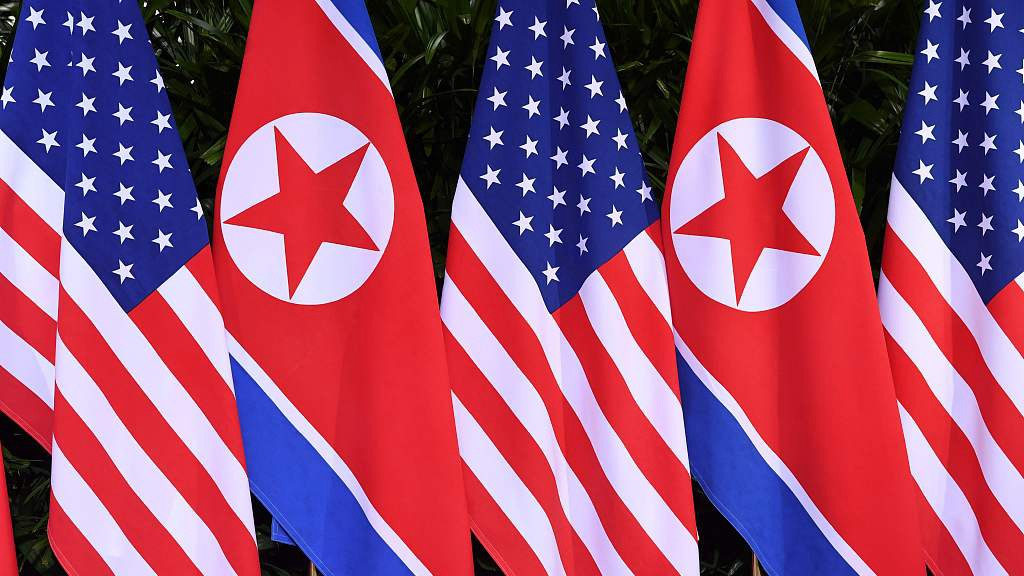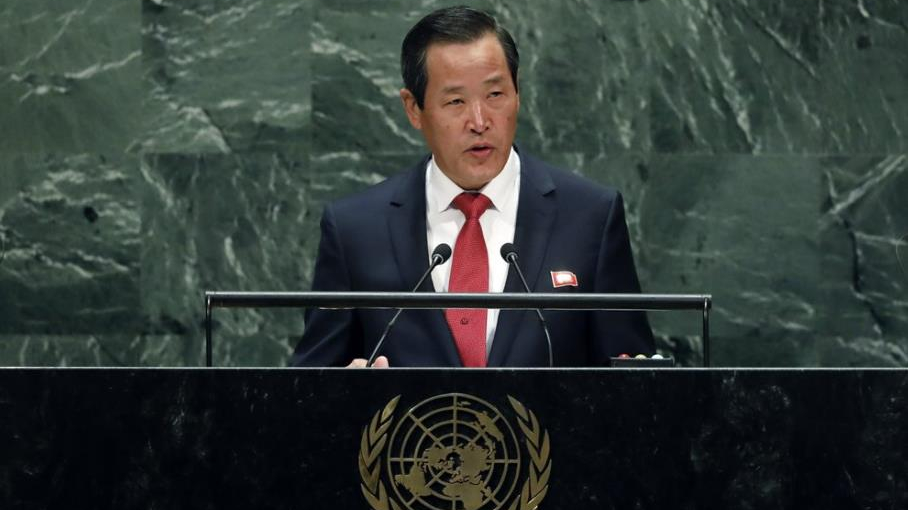
Editor's Note: Sun Chenghao is an assistant research professor at the Institute of American Studies, China Institutes of Contemporary International Relations. The article reflects the author's opinions, and not necessarily the views of CGTN.
After the recent working-level nuclear talks in Sweden between officials from the Democratic People's Republic of Korea (DPRK) and the U.S., the DPRK side claimed that the talks had broken and ruled out the possibility of resuming negotiations. It accused the U.S. of inflexibility, whereas the U.S. still hoped to return to Sweden for more discussions in two weeks.
It seems that both the DPRK and the U.S. are resorting to the strategy of brinkmanship – gaining leverage and pressuring the other side to concede when things have developed into a crucial stage. In early 2018, the U.S. even considered a "bloody-nose" strike on the DPRK as a serious option in an attempt to impose the maximum pressure on the country.
But the threat was not designed to paralyze the DPRK's military capability, but to press the country into negotiations. Eventually, U.S. President Donald Trump and DPRK leader Kim Jong Un held their historic summit in Singapore in June 2018.
Now the DPRK, by stating that it would not "hold such sickening negotiations," is using a similar strategy to press the U.S. to withdraw from its hostile DPRK policy. The Trump administration is clear that the interactions with Pyongyang have entered into its most challenging part.
Whether to relieve sanctions on the DPRK is the foremost issue at this stage. While Pyongyang believes that sanctions must be lifted as a precondition for its further denuclearization efforts, Washington insists that sanctions be reserved as leverage and would only be lifted after the DPRK realized substantial denuclearization.

Kim Song, chair of the DPRK delegation, addresses the 74th session of the UN General Assembly, September 30, 2019. /AP Photo
Kim Song, chair of the DPRK delegation, addresses the 74th session of the UN General Assembly, September 30, 2019. /AP Photo
Although the U.S. slightly softened its position before the second summit between Trump and Kim in Vietnam, U.S.-DPRK disputes on sanctions are unlikely to be addressed in the short timeline.
It was hoped that the working-level negotiations in Sweden could at least work out a partial agreement on sanctions, but it seems that the differences are insurmountable. A lack of mutual trust is the fundamental reason.
The DPRK has been eager for security assurances from the United States. Although Trump committed to providing security guarantees to Pyongyang and Kim reaffirmed the pursuit of a complete denuclearization on the Korean Peninsula during their summit in Singapore, the two countries are not on the same page on the issue.
What the DPRK needs the most is not the promises Washington provided in paper or words such as not seeking a regime change in the DPRK. The U.S.-led military threat is what the DPRK is concerned about the most. It is on high alert of any military exercise by the U.S. and the Republic of Korea (ROK).
To alleviate Pyongyang's anxieties, Washington must reduce the scale and frequency of joint military drills with the ROK. This would be help ease tensions and build mutual trust between Pyongyang and Washington.
However, the ongoing domestic political turmoil in the U.S. would only make the matter worse. Pressured by the impeachment inquiry, Trump would need diplomatic achievements to offset his losses in domestic politics.
But a team perplexed by the impeachment inquiry would hardly put forward any creative idea or option for the next round of negotiations with the DPRK. How the two countries will interact remains to be seen.
(If you want to contribute and have specific expertise, please contact us at opinions@cgtn.com)